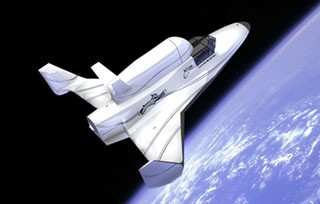Tue, Aug 18, 2015
Will Be Carried Into Space Aboard The XCOR Lynx Spacecraft
Citizens in Space, a project of the United States Rocket Academy, has announced a list of 10 experiments selected for its first research mission on the XCOR Aerospace Lynx spacecraft.

The experiments will be carried aboard the Lynx Cub Payload Carrier, an open-source payload carrier developed for the Lynx spacecraft by Citizens in Space. Experiments will be controlled in flight by a Citizens in Space science-mission-specialist astronaut.
The experiments announced today cover a wide range of subjects from microgravity crystallization to plant growth, antimicrobial materials for space habitats, and the interaction of water with lunar surface materials. The experimenters are equally diverse.
"Mission One includes citizen scientists working at every level, from high school to professional research labs," said Dr. Justin Karl, Chief Payloads Officer for Citizens in Space.
The experiments selected are:
- Angelicvm Aerospace Foundation of Santiago, Chile. Crystallization Rates in Microgravity.
- Bishop Planetarium at the South Florida Museum in Bradenton, Florida. Microgravity Water Electrolysis Optimization.
- CD-SEAS of Honolulu, Hawaii. Effectiveness of Anti-Microbial Coatings in Microgravity Conditions.
- Florida International University of Miami, Florida. Regolith Compression Mechanics in Reduced- and Micro-Gravity.
- Flightsafety Makers of Columbus, Ohio. Characterization of Local Inertial Loading and Comparison with Avionics Data.
- Syncleus of Philadelphia, Pennsylvania. Realtime Payload Conditions Monitoring.
- NewSpace Farm LLC of Seattle, Washington. Microgravity Botany Pod Hardware Evaluation..
- The Pinkowski Group of Montrose, Pennsylvania. Concentration Gradient Equalization Rates.
- Terran Sciences Group of Orlando, Florida. Inter-Payload Heat Transfer Characterization.
- Texas Southern University of Houston, Texas. Non-Fick Diffusion in Microgravity.
- Students for the Exploration and Development of Space at the University of Central Florida in Orlando. Hydrophobic Coating Effectiveness for Space Applications.
- University High School of Orlando, Florida. Investigation of Regolith Hydration in Zero Gravity.
Citizens in Space is continuing its call for experiments.
The mission announced Thursday is one of ten flights purchased by Citizens in Space. "Citizens in Space is making these flight opportunities available at no cost to citizen scientists," Dr. Karl said. "In return, citizen scientists pledge to make their experiment designs and data openly available to the entire community. Our goal is to create a huge catalog of flight-proven experiments that future researchers can draw from.
"As science-fiction writer Robert Heinlein once said, 'You can't pay it back. You have to pay it forward.'"
(Image from file)
More News
Pilot Also Reported That Due To A Fuel Leak, The Auxiliary Fuel Tanks Were Not Used On June 4, 2025, at 13:41 eastern daylight time, a Piper PA-23, N2109P, was substantially damage>[...]
From 2023 (YouTube Edition): Reflections on War’s Collective Lessons and Cyclical Nature The exigencies of war ought be colorblind. Inane social-constructs the likes of racis>[...]
Pilot Reported That He Was Unfamiliar With The Single Seat Amateur-Built Airplane And His Intent Was To Perform High-Speed Taxi Testing Analysis: The pilot reported that he was unf>[...]
From 2023 (YouTube Edition): First Kits to Ship October 2023 Having formerly resurrected the storied shape of the Ryan ST—in effigy, anyway—Montrose, Colorado-based Tim>[...]
Performance-Based Navigation (PBN) [ICAO] Area navigation based on performance requirements for aircraft operating along an ATS route, on an instrument approach procedure or in a d>[...]
 NTSB Prelim: Piper PA-23
NTSB Prelim: Piper PA-23 Classic Aero-TV: One Mans Vietnam
Classic Aero-TV: One Mans Vietnam NTSB Final Report: Capella Aircraft Corp FW1C50
NTSB Final Report: Capella Aircraft Corp FW1C50 Classic Aero-TV: Timber Tiger Touts Curtiss Jenny Replicas
Classic Aero-TV: Timber Tiger Touts Curtiss Jenny Replicas ANN's Daily Aero-Term (07.04.25): Performance-Based Navigation (PBN) [ICAO]
ANN's Daily Aero-Term (07.04.25): Performance-Based Navigation (PBN) [ICAO]



